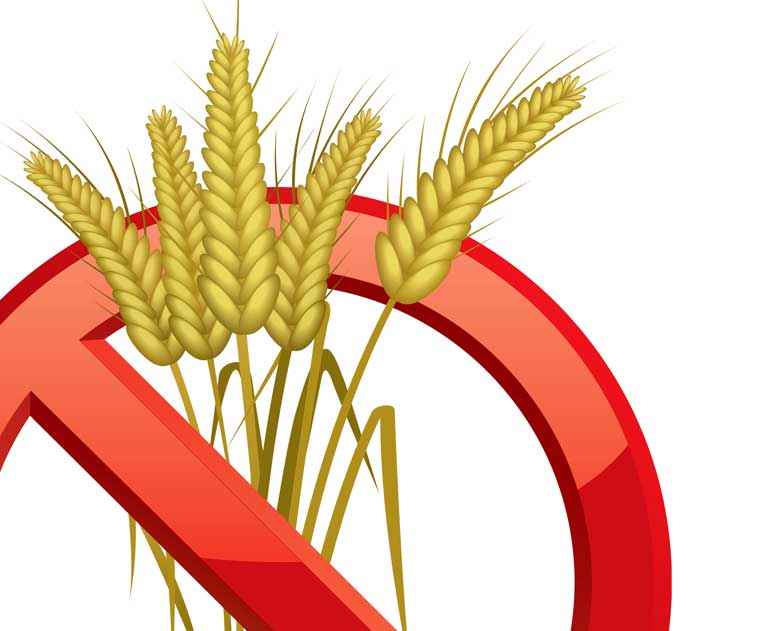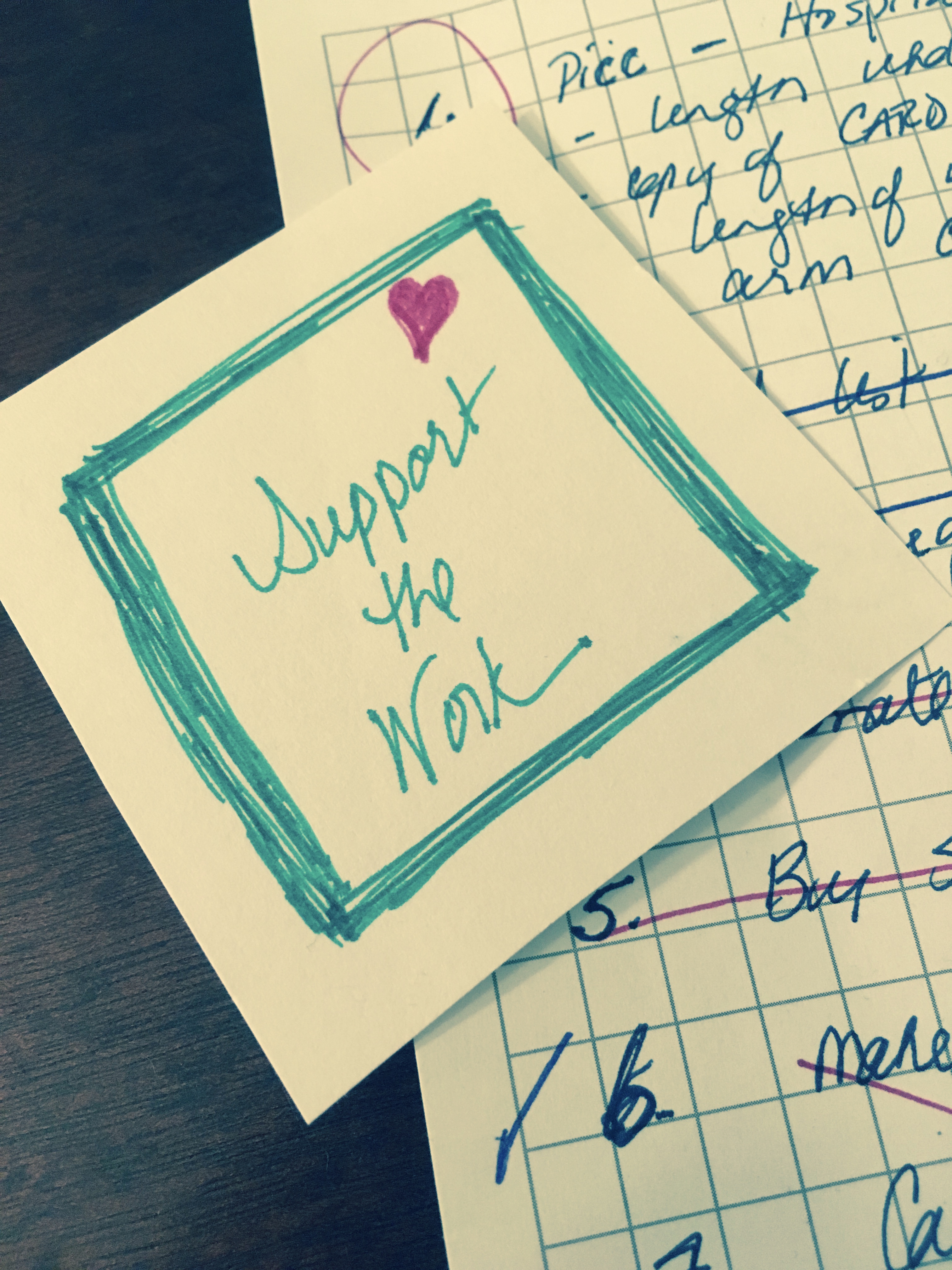The Most Surprising Places for Hidden Gluten
 Tuesday, May 28, 2013 at 12:11PM
Tuesday, May 28, 2013 at 12:11PM  Elisabeth Veltman, The Tender Foodie tagged
Elisabeth Veltman, The Tender Foodie tagged  gluten ingredients,
gluten ingredients,  hidden gluten,
hidden gluten,  surprising places for gluten list
surprising places for gluten list  Email Article
Email Article  Print Article in
Print Article in  Food Allergy Facts,
Food Allergy Facts,  Food Allergy Processing,
Food Allergy Processing,  Labeling,
Labeling,  Nutrition Tip,
Nutrition Tip,  Reader Questions
Reader Questions 
The Way We've "Always" Done It
For years, food processors have gotten used to procuring, milling, making, packaging, and shipping our food in a certain way. Marketing, science, operations have all jumped on board to make modern processes more efficient, food more "palatable" (sometimes more addictive), and shelf- and shipping- life longer.
Progress. It's a natural human response to ... progress. However, in solving our business problems, we've forgotten the human equation. That wonderful, natural symbiosis of land, plant, animal, atmosphere, mind, body, and spirit is lost in the needs of mass production. It isn't the way we've "always done it". It's new, and what affects our food supply affects us.
Take gluten, for instance. Sometimes it's simply how something is made - with wheat, rye, or barley. But often, we've added gluten as a thickener and a preservative. We've floured our gargantuan machines with it so the coffee beans don't stick. We process wheat products along with other foods that have nothing to do with grain. We've increased (genetically engineered) by 14% the protein content of gliadin, one of the proteins in the gluten grains we farm without realizing that human beings don't have the enzyme to digest it. It's true.
So here we are, the food consumer, with health problems. Celiac disease has increased 4-fold (at least) within the last 50 years, and 90% don't know they have it. A new food allergy called "gluten sensitivity" is affecting over 25 million people. Gluten is thought to trigger behavioral issues and increase symptoms of many other diseases. There are several credible theories as to why, and all of them probably hold a great deal of water. One of these theories is that we have more gluten in our food than our bodies can handle.
I use this list in different talks that I give to help illustrate the surprising places you can find a significant amount of gluten. Significant, meaning, it will make you sick. People ask me to put this list on the blog, so here you go. I'll keep adding to the list and put it on a more permanently accessible place on the site as well. In the end, it all comes down to reading the label and knowing your brands... and listening to you intuition and your body, as well as to the experts.
Read more about the labeling differences between the USDA & the FDA.
The Surprising List
Add your own in the comments section and help other Tenders out!
- Chicken/Beef/Vegetable Broth (thickener) - Make your own, see beef broth recipe here... and chicken broth/general recipe here.
- The Bulk Bin: any item that you find in bulk has a high risk of cross contamination - either during processing before it reaches the store, or at the store, as customers use, mix, and re-use the scoops.
- Tomato Paste & Condiments like catsup and mustard (thickener) - I like Annie's ketchup & mustards
- Soy Sauce (ingredient - get gluten-free tamari (like San-J), or gluten-free soy, or gluten-free coconut aminos, like Coconut Secret)
- Nuts (if processed w/ grains. Blue Diamond almonds are generally accepted in the GF community as gluten-free)
- Dried Fruit (often processed w/ grains - I LOVE Made In Nature dried fruits)
- Flax/chia seeds (often processed w/ grains)
- Corn flour, tortilla, corn chips (often processed w/ grains.... flour cross contaminates easily and abundantly in factories)
- Rice Noodles (can be processed w/ gluten grains)
- Potato Puffs (sometimes coated with corn flour that can be processed with gluten)
- Hot dogs/ Bratwurst (as a filler)
- Processed hamburger patties (as a filler)
- Coffee (large processors often use a gluten-containing white powder to flour their machines, although this practice is changing, processors aren't talking... get to know your local roasters. Smaller roasters do not need this powder - read more here.)
- Commercial chicken & turkey (some use gluten solution as a "plumper")
- Cold Cuts (as a filler)
- Oats (processed w/ gluten grains... also some people react to a compound in oats... if you can eat them, get gluten-free oats)
- Pickles & Olives (malt vinegar is often made from barley)
- Smoke Flavoring (often derived from barley malt, or other gluten-grains)
- Caramel Coloring (can be derived from barley, although in the U.S. it is usually derived from corn - read the label, but it is best to be safe and avoid caramel coloring)
- Vanilla and all other extracts (distilled, grain-based alcohols are used in extracts... some people do react to distlled grain alcohols and vinegars. Also, some extracts contain caramel coloring derived from barley)
- Spices - especially spice blends (McCormick pure spices are gluten-free and generally accepted by the GF community. McCormick spice blends, however, can contain gluten ingredients - so read your labels)
- MSG: read more about MSG here.
- Salad dressing - often contains gluten as a thickener and/or has grain-derived vinegars (malt vinegar especially). Many react to wheat/barley derived vinegars.
- Flavored potato chips (some non-flavored potato chips) - double check the label of anything that has a flavor coating or additive
- Low Fat Dairy: yep, can be thickened with gluten.
- Bacon: if it is made w/ smoke flavoring, the flavoring can be derived from various sources of gluten (including barley, and brewer's yeast. Brewer's yeast is a by product of beer.) A clue to safe bacon is that which is local, apple or hickory smoked - but call the manufacturer to double check.
- Personal Care Products & Toothpaste: Read more here
- Mouthwath
- Toothpaste & Flavored Dental Floss: Many toothpastes contain gluten, but there are gluten-free toothpastes, like Desert Essence, which I love. Minted or flavored dental floss are suspected of containing gluten as well, and I'm researching this further as it became clear that I was reacting to something in it. Unflavored is a much safer bet. Here is a list of companies that are starting to claim a gluten-free status:
- Oral B Dental Floss
- Oral B Stages Toothpaste (does not say anything about other toothpaste lines)
- Dental gloves, Polishing paste, Flouride, Topical Anesthetic: The gloves that your dentist uses? Make sure they are not powdered. They can be powdered wtih starch, usually starch that contains wheat or could be corn starch cross contaminated. Gluten is hiding in many common dental products, such as toothpaste and the flavored polishing paste, topical anesthetic and even the fluoride commonly used in many dentist offices. Check with your dentist before your next visit to see if they know if the products they use include gluten - it might not appear in the ingredients, since by law it does not have to. If they aren't able to or won't properly research the ingredients, ask for alternatives (or find a new dentist).
- Orthodontic Retainers & Dentures: Really. Some plastics (many, actually) are made with gluten. Read more.
- Surgical Implants: Intra-ocular implants to replace the lens in the eye, bone cement, dental implants, are often made from Poly(methyl methacrylate) (PMMA), and this substance can contain gluten. So have your surgeon double check that the materials they are using for any implants do not contain gluten.
- Cosmetic Surgery: fluids used to reduce the appearance of wrinkles or scars can also be made from PMMA, which can contain gluten. Check w/ your surgeon/doctor to be sure they are able to use a non-gluten material.
- Beauty Products: Read more here
- Medications & Supplement: Read more here
- Cough Syrups
- Envelope glue UPDATE: Dr. Alessio Fasano had his team investigate this in his book, Gluten Freedom, and found that envelope glue does not contain gluten, but is corn starch-based (so if you are allergic to corn, take note.) This is according to the Envelope Manufacturers Association based in Alexandria, Virginia.
- Powdered / Confectioners Sugar: many (if not most) powdered sugars are mixed with a wheat or corn-based starch (and corn starch can also be cross contamintaed with gluten).
- Charcoal Briquets: Becky, from a local Celiac Support Center here in Grand Rapids, let me know about this. Many charcoals have a form of starch, usually wheat-based (but also could be corn, rice, or potato), that holds the charcaol in the briquette form, and allows a controlled burn. There is a risk that the gluten from the briquette could be inhaled, as well as get on the food cooked over it and digested. Your best bet is to use an all wood charcoal (lump charcoal) that can be found at major hardware stores chains and some grocery stores.
- Laundry Detergent
- Window Cleaner
- Kitty Litter (esp. the "natural" kind)
- Playdoh - & molding clays: contain wheat and can cross contaminate on hands, and easily get into a child's mouth or eyes from the hands.
A Note on Distilled Alcohols & Vinegars
There is a debate in the gluten-free community upon whether or not distillation removes all of the proteins from a grain-based alcohol or vinegar. There are respected leaders in the community that say that all distillation removes all gluten proteins so that all vinegars, spirits, and alcohols are "safe" for the gluten-free, even if derived from a grain. I have a great deal of respect for the research these leaders have done, but I've never heard them say, "we've tested this and the protein content is zilch." I've also heard them say, "if you are really sensitive to gluten, like an allergy, then avoid gluten-based alcohols." This is very confusing. Also, there are food processors, who pay close attention to the vinegars in mustard, for instance, and I wonder, if they are testing and using non-gluten vinegars and alcohols, why others do not. These processors either test for the presence of gluten, or use vinegars that are derived from non-gluten sources.
I've also seen and received comments that gluten-free Tender Foodies DO REACT to distilled vinegars, spirits, and alcohols that are dervied from grains, but DO NOT react to vodkas, for instance, that are purely derived from potato; or to pure rum, or to pure tequilla (for example). I am one of them, and it took me a long time, and great discomfot before I figured this out. There are many reasons to react to alcohol (yeast, sulfites, just plain drinking too much etc), but grains could be one of those reasons, and to me, experimenting is not worth the risk. There are some great, non-grain options out there, and even some beer that has been tested for gluten, but dervied from barley. Confusing? Yep. So the questions, creativity and debate continues. Please pay attention to your body and intuition as much as you do labels and experts.
I'll be doing more research on this and may come up with my tail between my legs. However, I would like you to be aware of your options and possible pitfalls; and throw your opinonated hat in the ring in the comments below! I'd love to hear about your experience.
Do you react to distilled, gluten-based alcohols?
What are some of the most surprising place where you have found gluten?

